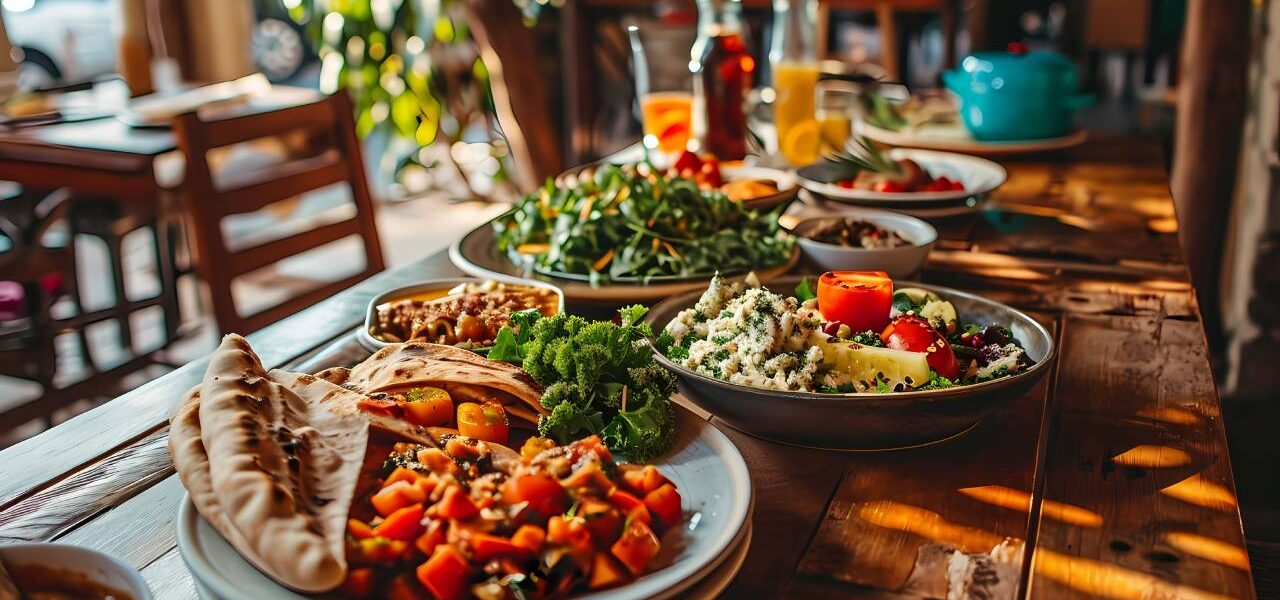In Melbourne, a city celebrated for its vibrant culinary scene, business conferences are increasingly moving beyond the traditional fare of sandwiches and coffee. To make events truly memorable, organizers are now integrating cutting-edge food trends into their menus. These modern culinary approaches not only enhance the attendee experience but also reflect Melbourne’s innovative food culture. This article explores the latest food trends transforming Melbourne’s business conference menus, offering practical insights for organizers aiming to impress their guests.
Embracing Local and Sustainable Ingredients
Local Sourcing and Seasonal Menus
A prominent trend in Melbourne’s food scene is the emphasis on local and sustainable ingredients. Conference menus are now showcasing produce from local farms and artisanal suppliers. This approach ensures freshness, supports the local economy, and reduces the carbon footprint. For example, menus might feature seasonal vegetables from local markets or cheeses from nearby dairies. By incorporating these ingredients, conferences can offer a unique and community-focused dining experience that resonates with attendees.
Seasonal menus are another way to highlight local ingredients. Aligning the menu with the season’s produce allows organizers to offer dishes that are both fresh and flavorful. For instance, a summer conference might include vibrant salads with heirloom tomatoes and herbs, while a winter event could feature hearty dishes like pumpkin risotto. Adapting the menu to seasonal availability ensures that each event offers a distinctive culinary experience.
Image Credit Goes to freepik
Interactive Food Stations
Customizable and Engaging Experiences
Food stations are becoming a standout feature at Melbourne’s business conferences, transforming the dining experience into a more interactive and engaging affair. These setups give attendees the opportunity to personalize their meals, adding a fun, custom touch to the event. For instance, a coffee cart station can offer Melbourne’s local brews, allowing guests to enjoy high-quality coffee while mixing and matching various syrups and toppings to create their perfect cup.
Image Credit Goes to Gathering Events
Innovative Plant-Based Options
The Rise of Plant-Based Eating
Plant-based eating is becoming a staple in Melbourne’s food scene, and business conferences are no exception. With a growing number of attendees embracing plant-based diets, it’s important for conference menus to include diverse and appealing plant-based options. This might include vegan cheese platters, plant-based sushi, or dishes like lentil curry. By catering to these dietary preferences, organizers can ensure that all guests have satisfying and enjoyable meal options.
The creativity in plant-based cuisine is expanding rapidly. Melbourne’s chefs are using innovative techniques and ingredients to craft dishes that are both visually stunning and delicious. Examples include using mushrooms to create meat-like textures or incorporating aquafaba as a substitute for egg whites. These advancements make plant-based meals exciting and satisfying, proving that plant-based dining can be both gourmet and innovative.
Dynamic Serving Experience
Live cooking demonstrations are enhancing conferences with a new level of excitement and engagement. Imagine chefs preparing gourmet dishes right before your eyes, with options ranging from juicy burgers to handcrafted gelato. This dynamic serving experience, featuring mobile food carts, brings freshly made, high-quality food directly to attendees. The lively atmosphere created by these on-site preparations allows guests to interact with the chefs, watch the cooking process, and sample delicious dishes, all while showcasing Melbourne’s innovative and vibrant food scene.
Image Credit Goes to Salam Experts
Fusion Cuisine and Modern Techniques
Combining Flavors and Techniques
Fusion cuisine is making a significant impact on Melbourne’s conference menus. By blending elements from various culinary traditions, chefs create unique dishes that offer new flavor experiences. For instance, Asian-inspired tacos or Mediterranean sushi rolls combine familiar ingredients in unexpected ways, providing a delightful surprise for attendees. This fusion of flavors not only adds variety but also reflects Melbourne’s multicultural food landscape.
Modern cooking techniques, such as sous-vide and molecular gastronomy, are also being integrated into fusion dishes. These techniques enhance the flavors and textures of the food while creating visually impressive presentations. For example, sous-vide cooked meats can be served with precise texture and flavor, while molecular gastronomy can add playful elements like foams or edible spheres. Incorporating these techniques into conference menus can make the dining experience more engaging and memorable.
Health-Conscious and Functional Foods
Nutritional Focus and Functional Foods
Health-conscious eating is increasingly influencing conference menus. Attendees are looking for options that are not only delicious but also beneficial for their well-being. Including nutritional options like quinoa, chia seeds, and avocados ensures that the menu caters to health-conscious guests. These ingredients are known for their health benefits and can be featured in dishes such as salads, bowls, and snacks.
Functional foods, which offer additional health benefits beyond basic nutrition, are also gaining popularity. Ingredients like turmeric, with its anti-inflammatory properties, or probiotics found in fermented foods, are being incorporated into conference menus. By including these functional foods, organizers can appeal to attendees who are mindful of their health and wellness, adding an extra layer of value to the dining experience.
International Food Trends
Global Flavors
International food trends are making a significant impact on Melbourne’s conference menus. Incorporating global flavors, such as Korean barbecue, Middle Eastern mezze, or Japanese street food, reflects the city’s multicultural spirit and offers attendees a taste of diverse cuisines. This not only caters to various palates but also provides a rich cultural experience, enhancing the overall appeal of the conference.
Food from emerging culinary destinations, like Peru or Sri Lanka, is also influencing Melbourne’s conference menus. By introducing dishes from these regions, organizers can offer attendees a taste of global food trends that are gaining international recognition. This adds an element of novelty and broadens the culinary experience, making the conference more exciting and engaging.
Eco-Friendly and Zero-Waste Practices
Sustainable Packaging and Waste Reduction
As environmental concerns become more prominent, eco-friendly and zero-waste practices are crucial for conference menus. Sustainable packaging, such as compostable plates and cutlery, helps reduce waste and supports environmental responsibility. Many conferences are also adopting digital solutions for menus and event materials to further minimize their ecological footprint.
Effective waste reduction strategies are essential for minimizing environmental impact. This includes practices like portion control to avoid food waste, repurposing leftovers, and composting organic waste. By implementing these strategies, conference organizers can ensure that their events align with broader sustainability goals and demonstrate a commitment to environmental stewardship.
Conclusion
Melbourne’s business conferences are evolving to reflect the city’s dynamic and innovative food scene. By integrating local and sustainable ingredients, offering creative plant-based options, and incorporating fusion cuisine and modern cooking techniques, organizers can create memorable dining experiences that captivate attendees. Customization, interactive food stations, and health-conscious options further enhance the conference experience, making it more engaging and inclusive.





